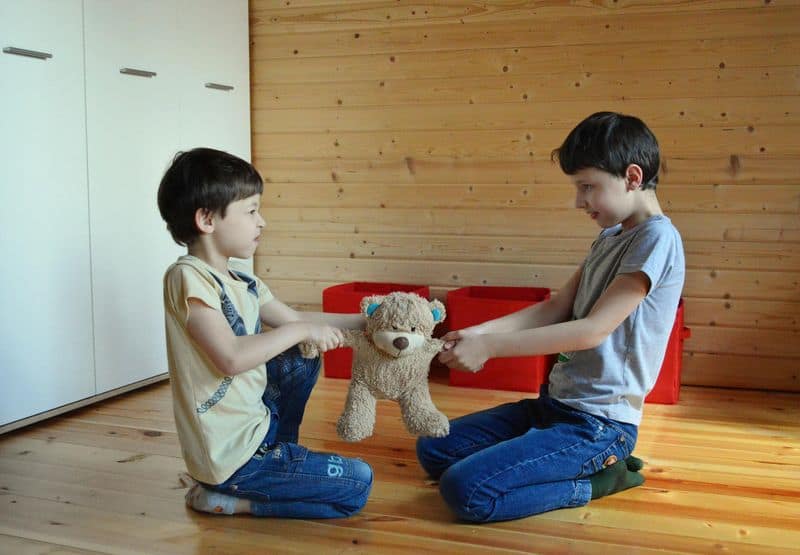Growing up with siblings means sharing toys, secrets, and countless memories. These relationships often shape us in profound ways.
But as we journey into adulthood, many siblings find themselves drifting apart, their once-close bonds becoming distant connections.
The reasons behind this shift are complex and deeply personal, affecting families in different ways.
1. Different Life Paths
Career choices, education goals, and personal dreams can send siblings in completely opposite directions. One might pursue a fast-paced corporate career in the city while another settles into small-town life with a family.
These diverging paths create not just physical distance but different daily realities. When lifestyles become dramatically different, finding common ground requires more effort.
The shared context that once connected siblings naturally fades as they build separate lives with different priorities, challenges, and experiences that others can’t fully understand without living them.
2. Geographic Distance Creates Emotional Space
Moving away for college, jobs, or relationships puts physical miles between siblings that can gradually transform into emotional distance. Those quick after-school conversations or Sunday family dinners disappear, replaced by occasional calls or text messages.
Without the natural rhythm of regular interaction, relationships require intentional maintenance. Many siblings underestimate how quickly connections fade when they’re no longer reinforced by daily or weekly contact.
Time zones, travel costs, and competing priorities make it increasingly difficult to maintain the same level of closeness that once came effortlessly when sharing a household.
3. Unresolved Childhood Conflicts
Remember that time your brother broke your favorite toy? Or when your sister got you in trouble with your parents? These seemingly small childhood grievances can fester over time if never properly addressed.
Adults often carry the emotional weight of past hurts into their current relationships. Without healthy resolution, old patterns of resentment, competition, or avoidance continue playing out decades later.
Many siblings never learn to redefine their relationship as adults because they remain stuck in childhood dynamics, viewing each other through the lens of who they were rather than who they’ve become.
4. Marriage and New Family Priorities
When siblings marry, they gain new family members who naturally become their primary focus. Spouses, in-laws, and eventually children create a shift in priorities and available time.
Holidays and special occasions that once centered around the family of origin now involve complex negotiations between multiple family systems. Loyalty conflicts can emerge when siblings feel forced to choose between birth family and the family they’ve created.
Different parenting styles, values, or religious practices between siblings’ new families can create additional friction that makes gatherings uncomfortable rather than enjoyable, leading to gradual withdrawal.
5. Personality Differences Become More Pronounced
As children, siblings often adapt to fit family dynamics, sometimes suppressing aspects of their true personalities. Adulthood brings the freedom to fully express who they really are, revealing stark differences that were always present but less visible.
Political views, religious beliefs, and lifestyle choices become more defined with age. When these differences are significant, conversations can become strained as siblings struggle to find neutral topics.
Some personality types naturally require more contact to feel connected, while others are comfortable with independence. This mismatch in connection needs can lead to one sibling feeling neglected while the other feels suffocated.
6. Financial Inequality Creates Tension
Money matters can drive wedges between siblings faster than almost anything else. When one achieves financial success while another struggles, complicated feelings of jealousy, guilt, or resentment often emerge.
Different financial positions create practical barriers to shared experiences. The sibling who can afford luxury vacations or private schools for their children lives in a different reality than one who works multiple jobs to make ends meet.
Inheritance issues or disagreements about caring for aging parents frequently expose or worsen existing financial tensions, sometimes causing permanent rifts that extend beyond the original financial concerns.
7. Differing Approaches to Family Problems
Family challenges like aging parents, troubled relatives, or shared inheritances often reveal fundamental differences in how siblings handle difficult situations. One might take charge while another avoids confrontation entirely.
These contrasting approaches can lead to misunderstandings about intentions and values. The sibling who steps back might be seen as uncaring, while the one who takes control might be viewed as controlling or self-serving.
When crises arise, old family roles often resurface unconsciously. The responsible older sister or the peacemaking middle child may find themselves frustrated by falling back into patterns they thought they’d outgrown.
8. Lack of Effort to Maintain Connection
Adult relationships require intentional maintenance, yet many siblings expect their connection to remain strong without effort. When both assume the other should initiate contact, communication gradually dwindles to birthday calls and holiday gatherings.
Technology makes staying connected easier than ever, but it also makes it easier to maintain a surface-level relationship through social media likes rather than meaningful interaction. Many siblings know what’s happening in each other’s lives without actually talking about how they’re feeling.
The business of adult life creates a perfect excuse for neglecting relationships that seem secure. Unfortunately, by the time many realize the connection has weakened, rebuilding it requires much more effort than maintaining it would have.
9. Painful Personal Histories
Some siblings share difficult family histories that become too painful to revisit. Trauma, abuse, or dysfunction can make maintaining relationships a constant reminder of painful experiences better left in the past.
Even when siblings weren’t directly responsible for each other’s pain, they may serve as living reminders of difficult times. For some, moving forward means creating distance from anyone connected to traumatic periods in their lives.
Siblings who processed shared experiences differently may struggle to understand each other’s coping mechanisms. One might need to discuss past events to heal, while another finds peace only in never mentioning them again.
10. Life Stage Differences
Age gaps that seemed insignificant in childhood can create major disconnects in adulthood when siblings find themselves in completely different life stages. A 30-year-old navigating early career and dating has little in common with a 45-year-old focused on college tuition and retirement planning.
Even siblings close in age can experience life milestones at different times. When one has children while another remains childless by choice or circumstance, their daily concerns and conversations naturally diverge.
Health challenges that typically come with aging can create additional separation when one sibling faces serious issues decades before another, creating an experiential gap that’s difficult to bridge with mere empathy.











